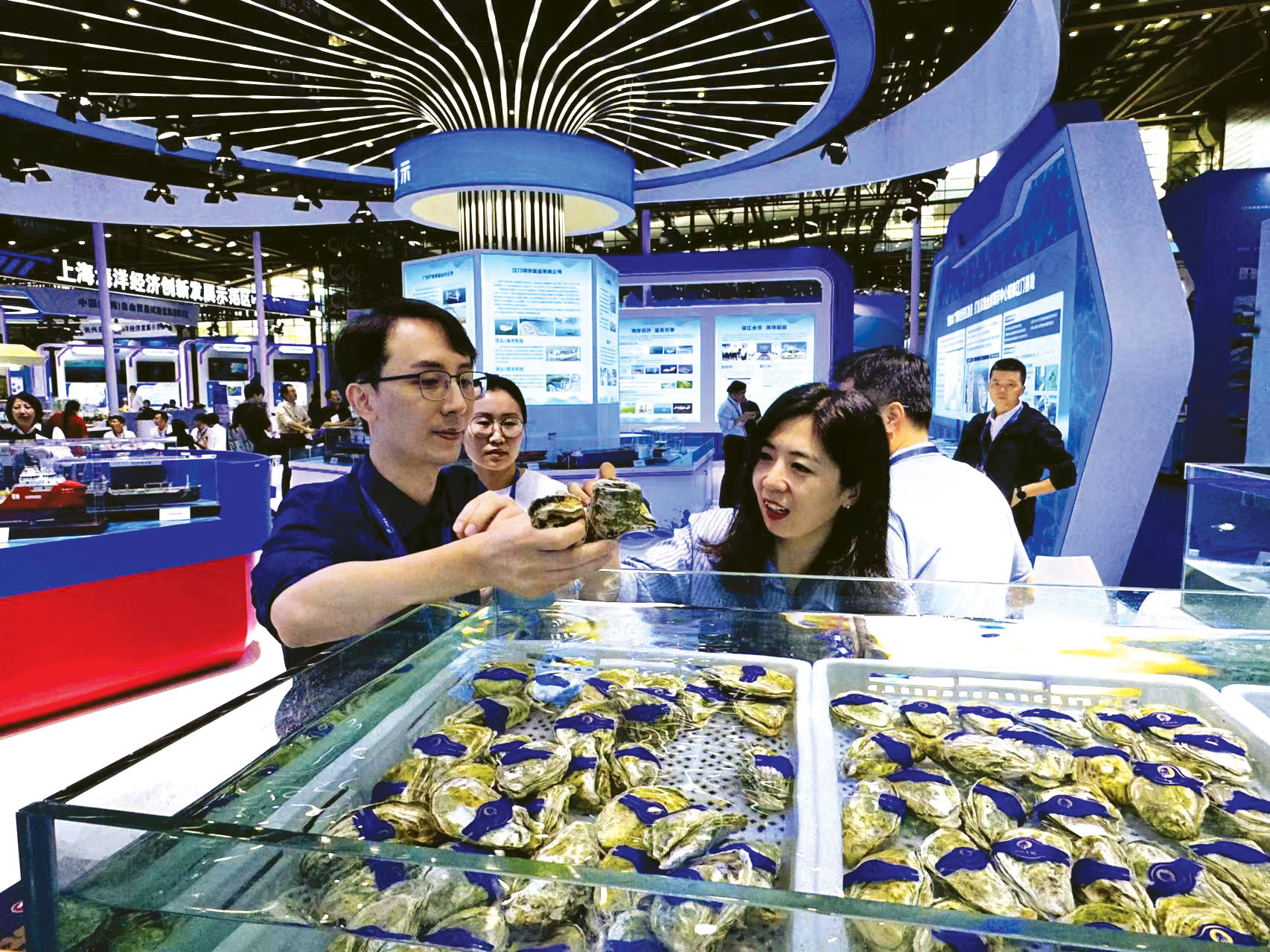Tech powerhouse Shenzhen needs to do more to overcome the challenges in tapping the city’s marine resources for commercialization. Liu Yifan reports from Shenzhen.

The 2024 China Marine Economy Expo kicked off in Shenzhen on Oct 31, labeled as the flagship platform to showcase the nation’s strengths in the blue economy — a term used to describe economic marine activity.
In many ways, the event lived up to the hype. Since its relocation to Shenzhen five years ago, the expo has captured domestic headlines by displaying the country’s own hardcore equipment and advanced technological achievements, ranging from ultra-deepwater drilling platforms to advanced seaplanes.
READ MORE: China’s flagship marine economy expo highlights GBA catalyst role
Large State-owned players drew crowds to their exhibits through various marine equipment models. Funky marine-related products have also been added to the main hall of the sprawling Shenzhen Convention and Exhibition Center, where attendees can try a virtual reality setup to simulate maritime rescue and sample fresh oysters from Jiangmen at bargain prices.
For the country and its coastal cities like Shenzhen, developing the blue economy is part of efforts to enhance its growth engine against the backdrop of today’s complex and volatile environment.
Sun Shuxian, vice-minister of natural resources and head of the State Oceanic Administration, told the expo that the authorities will continue to help the marine sector strengthen its research and development capabilities, and support the construction of strong marine provinces and modern marine cities.
The idea is that, with the government’s blessing, marine-related sectors can contribute to the nation’s higher level of openness, low-carbon ambition, and innovation-driven transformation.
However, a decidedly somber vibe in the hall next door featuring small and medium-sized firms highlighted the complexities of navigating the blue economy. Exhibitors there faced few inquiries and only a scattering of visitors. One participant said anonymously he hoped to see more visitors and new projects.
The market demand remains lackluster, said Yu Lei, project manager for investment promotion at Shanghai Lingang Changxing Economic Development Corp, an exhibitor at the expo.
Comparing Shenzhen with the shipbuilding-based marine economy of Changxing island, Shanghai, he said the southern Guangdong city focuses on financial services, marine electronics and port shipping, as well as marine culture and tourism.
As China’s southern manufacturing heartland, Shenzhen is known for its well-developed electronics industry, but there is a question mark as to how this strength can be applied to the marine economy, Yu said. “The marine environment has different requirements for equipment. In the current climate, it’s challenging for small and micro enterprises to invest in research and development, and trial and error.”
Hu Zhenyu, director of the Department of Sustainable Development and Blue Economy at the China Development Institute, noted the challenges facing Shenzhen’s marine basic research and commercialization.
He said the city’s universities should emphasize marine-focused disciplines. In particular, Shenzhen Ocean University, currently under construction, should support marine economic research and innovation by launching 60 percent engineering programs, 30 percent science programs, and 10 percent in marine law, biology, and related fields.
On the bright side, great growth potential beckons should the ocean be tapped well as the marine sector spans a vast ecosystem. For instance, deep-sea development is nascent, and ocean exploration, led by deep-sea mining, will drive advances in engineering equipment, underwater robots, sensor devices, ocean monitoring, and artificial intelligence. Additionally, marine energy like offshore wind power and deep-water aquaculture could boost China’s green transition.
ALSO READ: Marine technology makes Greater Bay Area greener, safer
To better unleash synergies in Shenzhen’s marine sector, several things need to happen, said Hu. First, large enterprises and mega projects should take the lead. Shenzhen municipal government data showed that the city is home to 30,000 marine-related enterprises. These include major State-owned companies China International Marine Containers, China Merchants Group and China National Offshore Oil Corp.
Efforts should also be made to make the marine technology industry chain better connected, focusing on basic research, industrial transformation, as well as financial and talent support, the senior research fellow said.
Shenzhen should also strengthen ties with Hong Kong in port cooperation, joint national marine research projects, and the co-development of marine sensing equipment and ecological protection.
Contact the writer at evanliu@chinadailyhk.com


